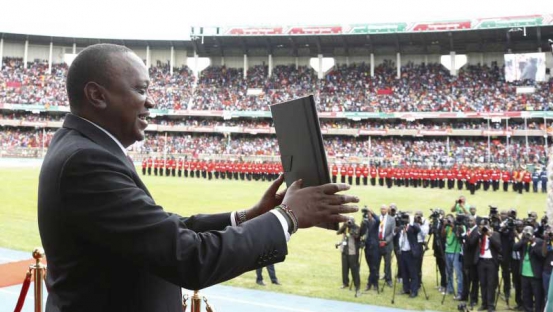
On November 28, 2017, three events in Nairobi - one at Kasarani, one at State House and one in Embakasi - symbolised a bright future and a deplorable past. Kasarani and State House were the future in which, after prolonged struggle, Uhuru Kenyatta took his second presidential oath of office.
Embakasi was the disappearing past, portending disruption, and country fragmentation. It had people who need time to sober up. It was, however, Kasarani and State House that attracted attention for two reasons. First was the Pan-Africanist tone the President adopted and second was the presence of Israeli Prime Minister Benjamin Netanyahu as the special guest.